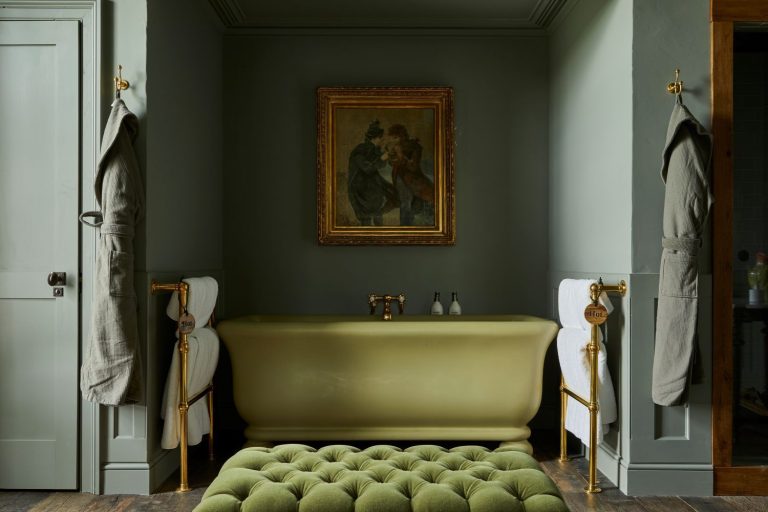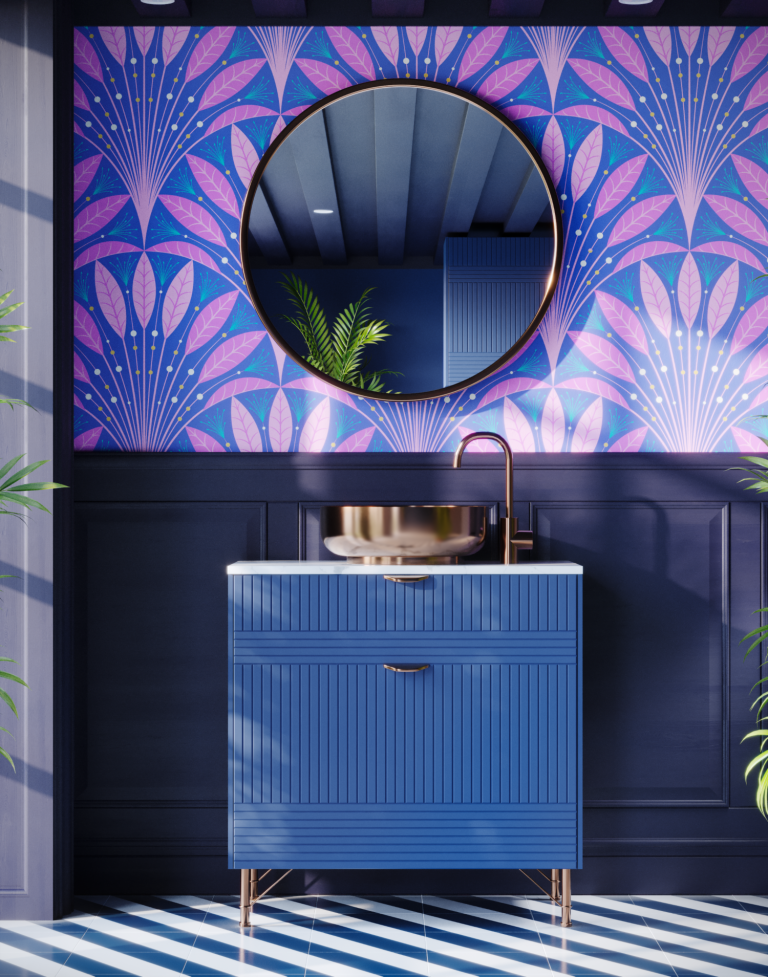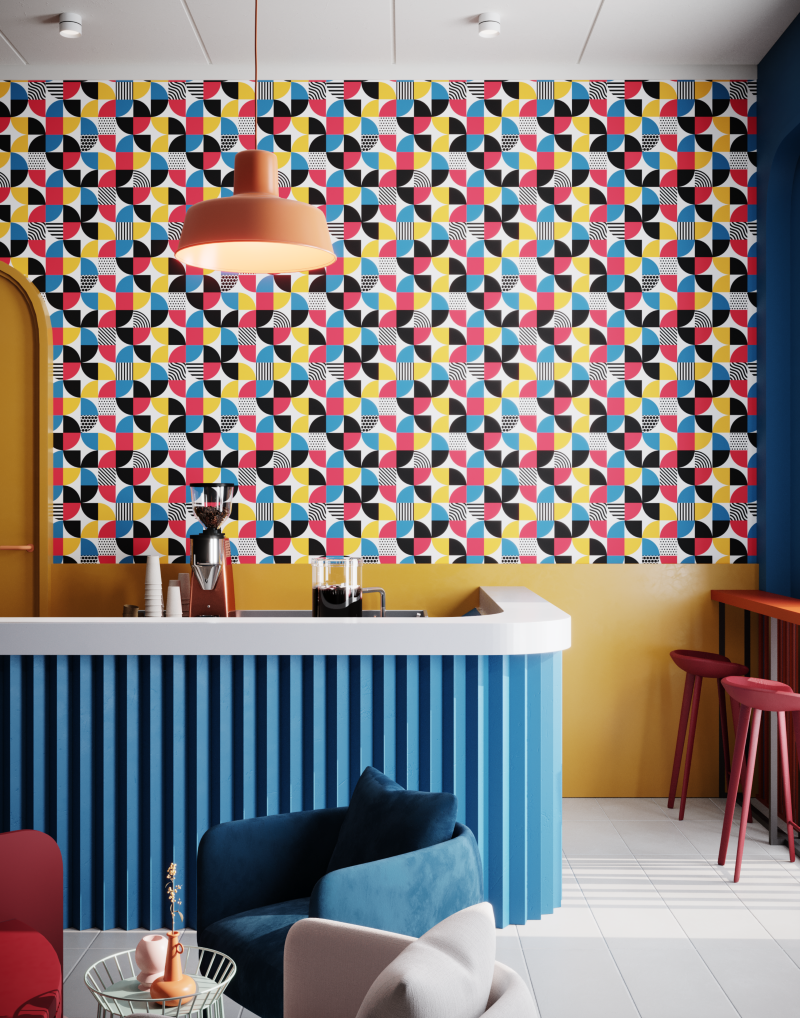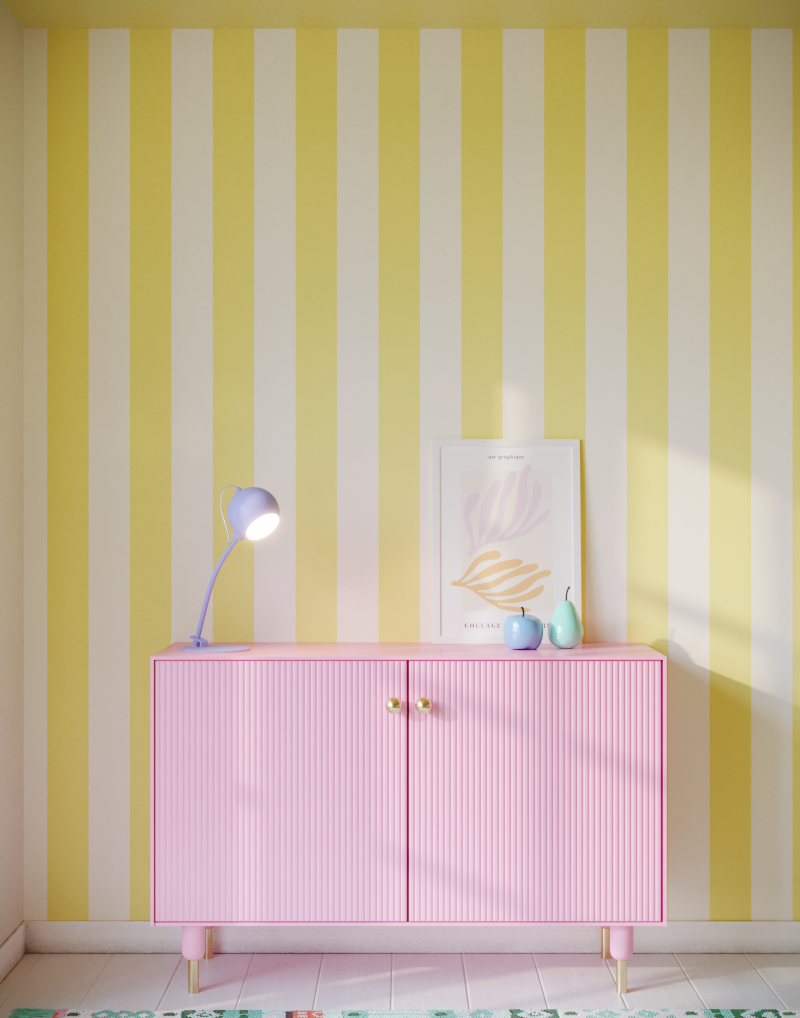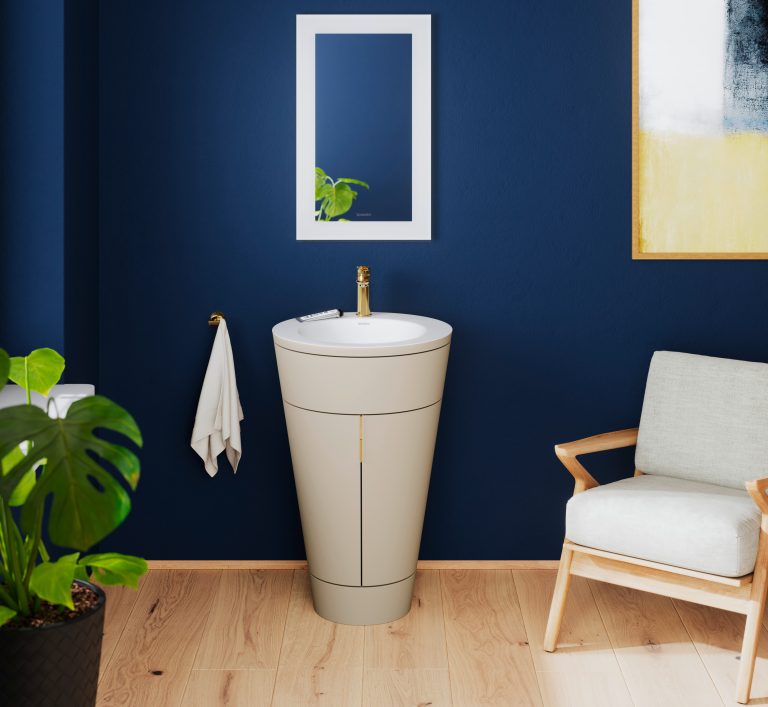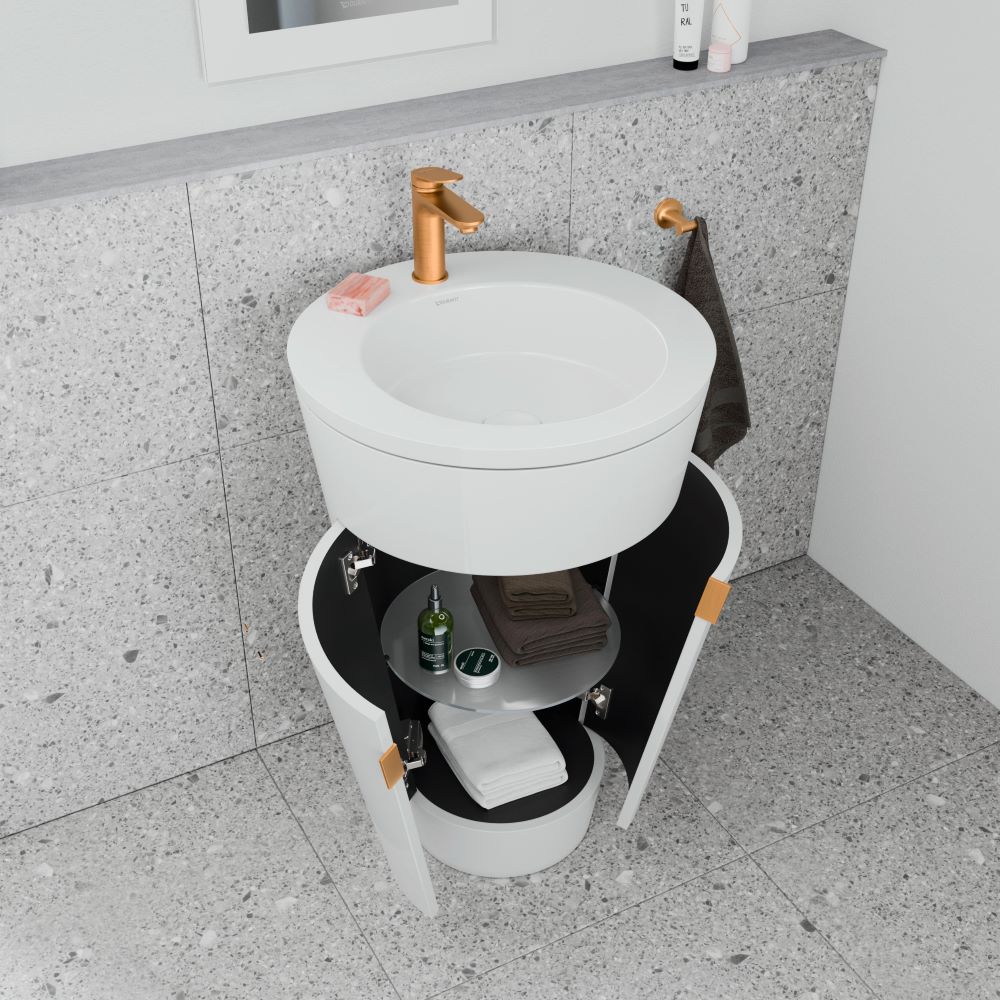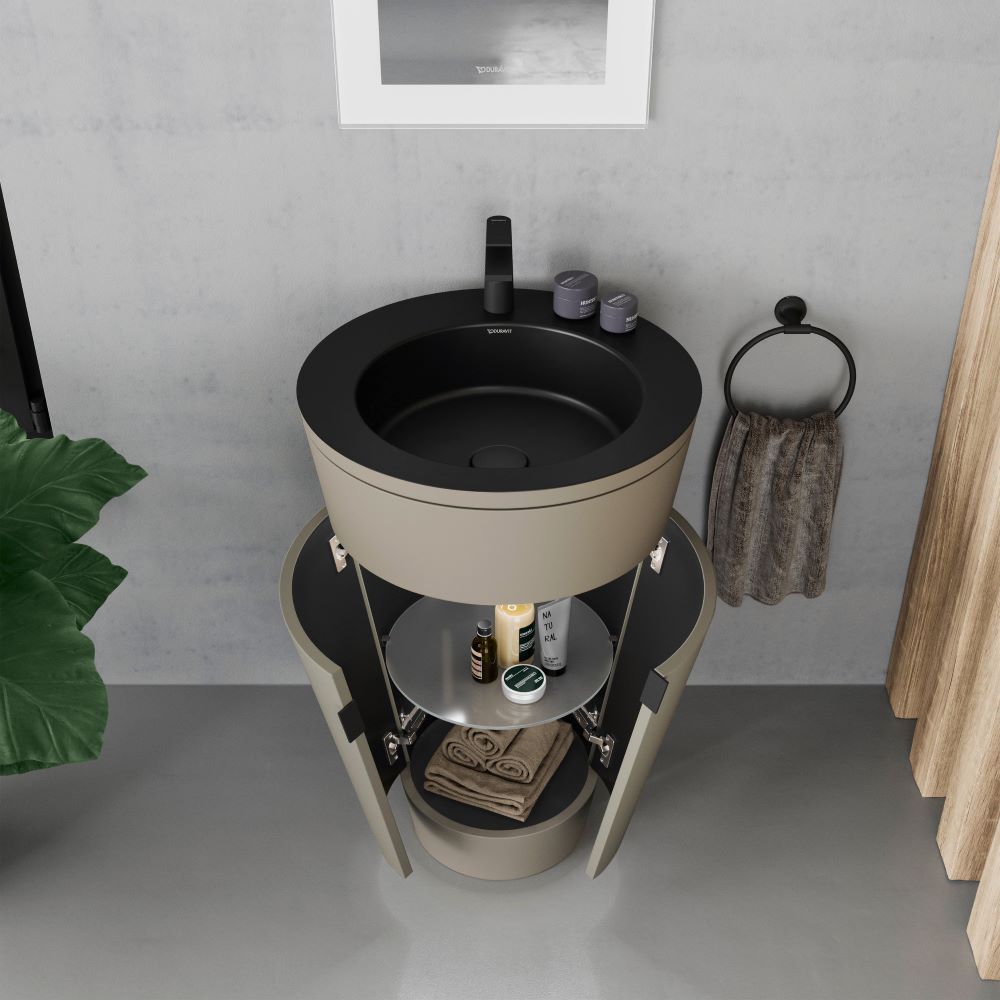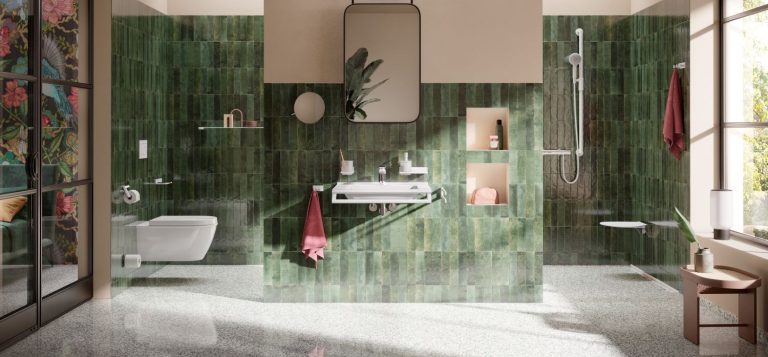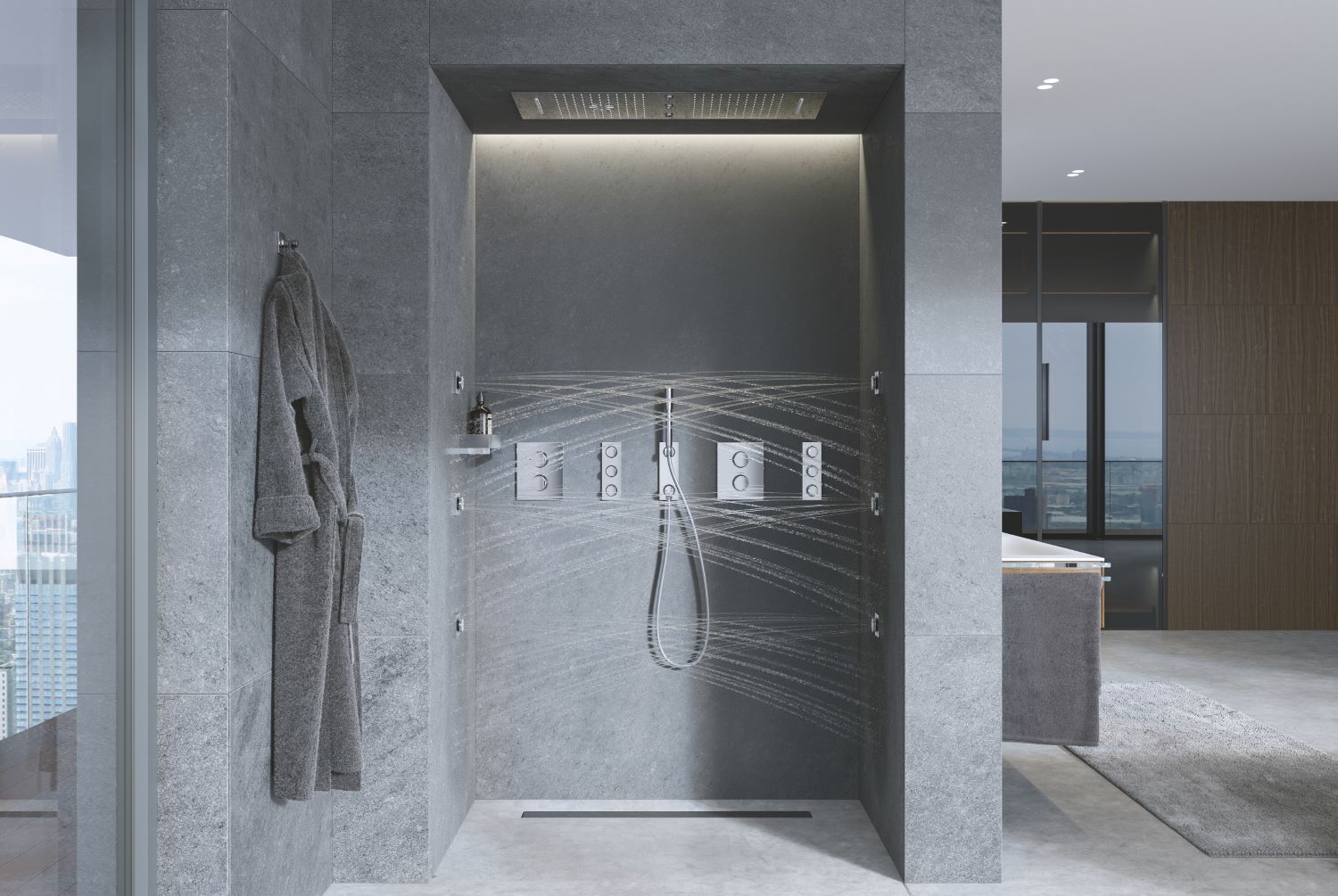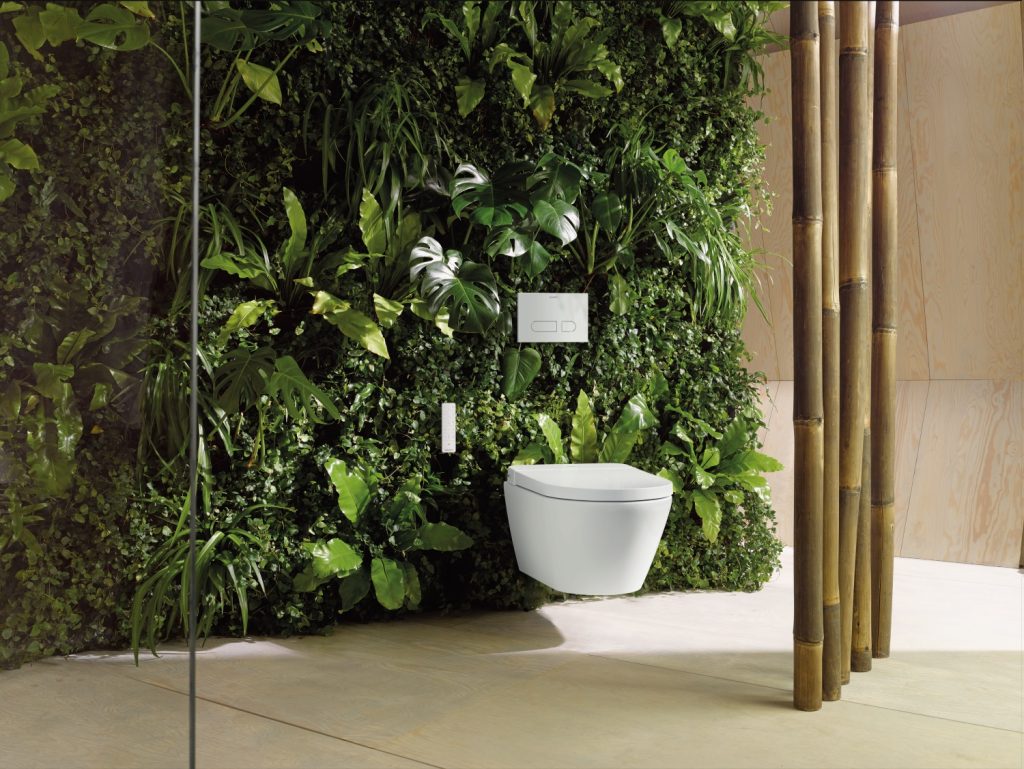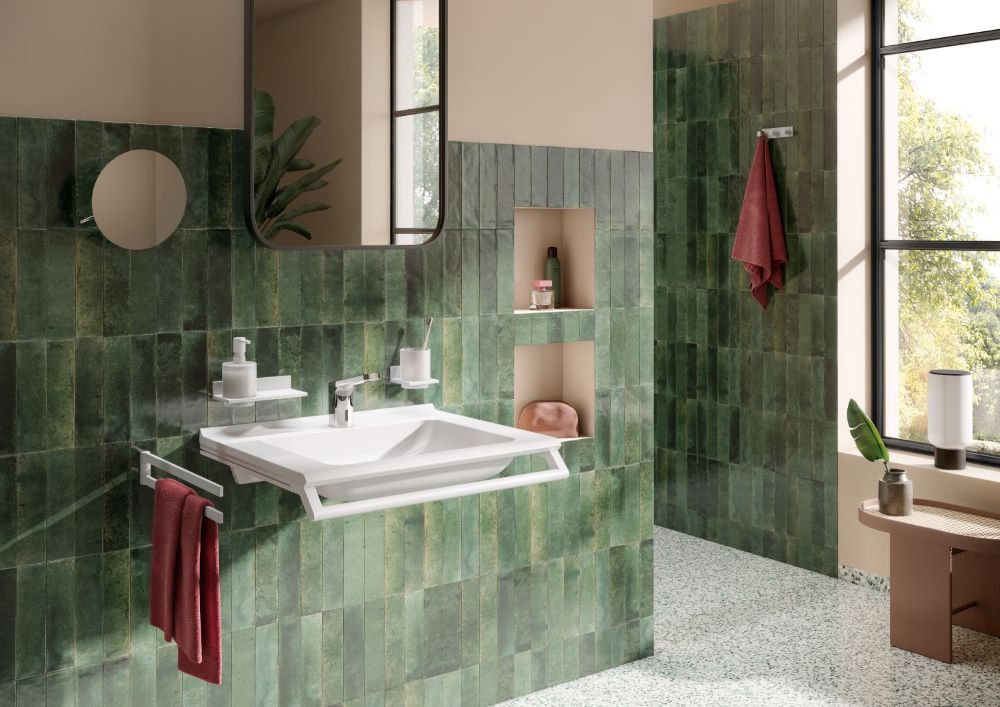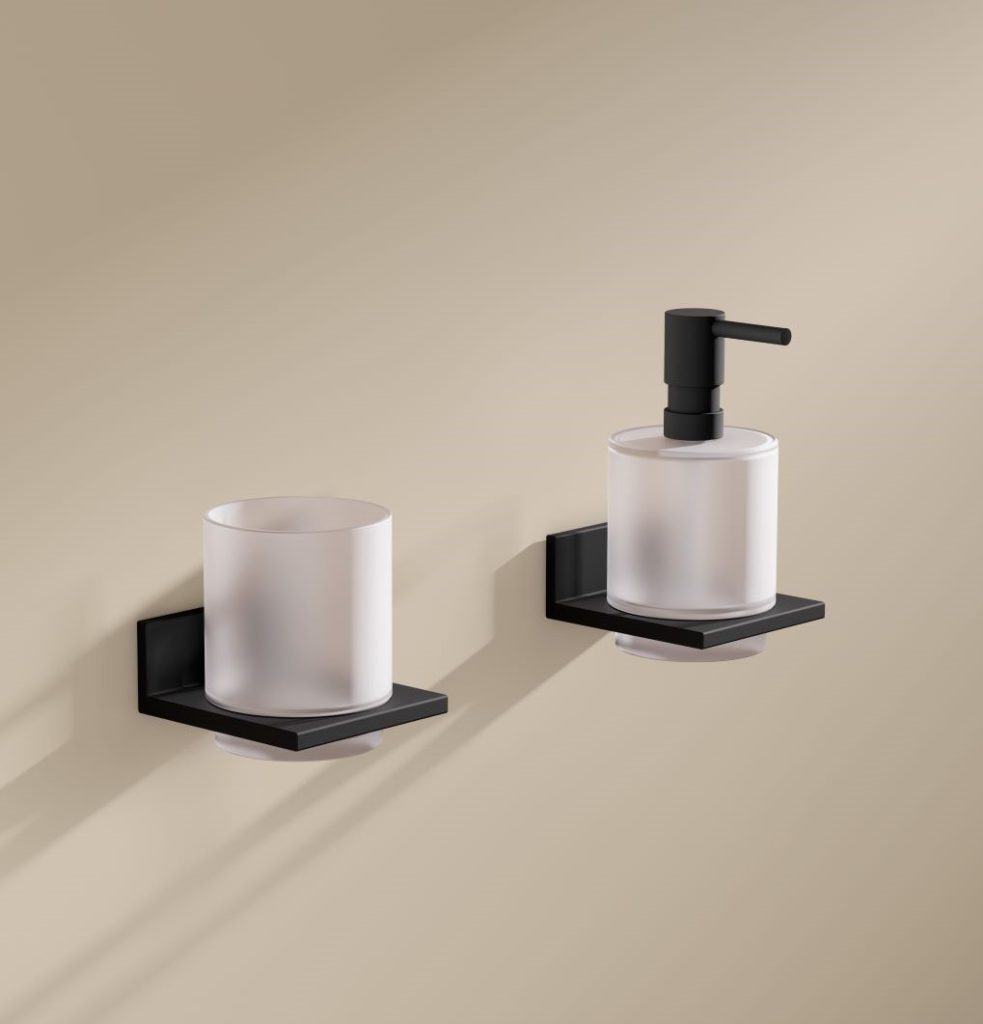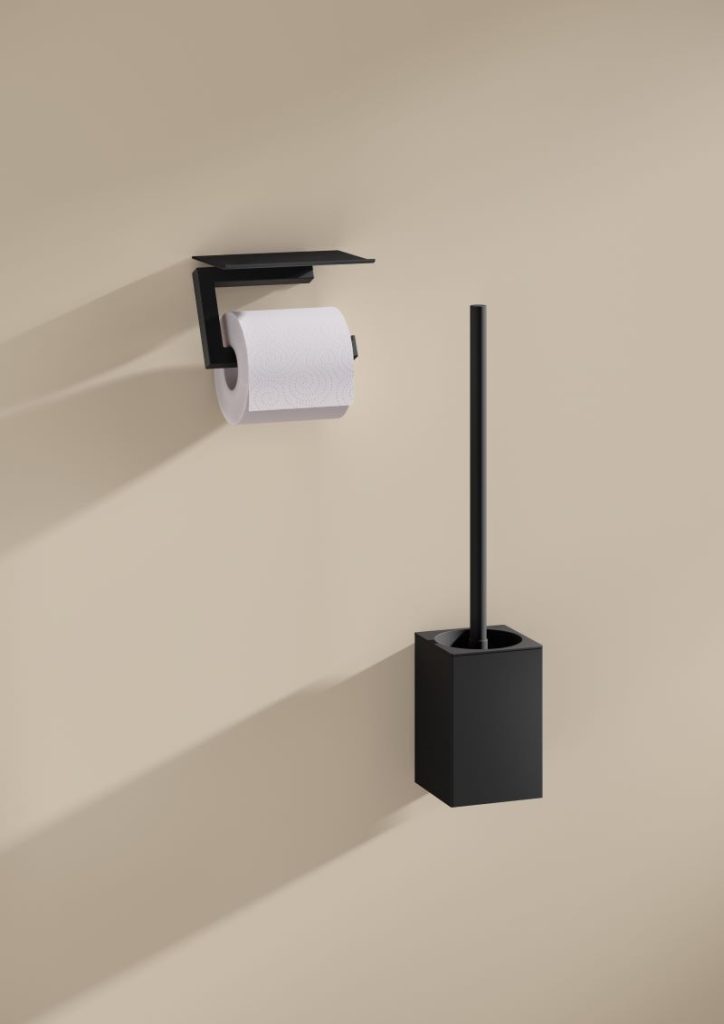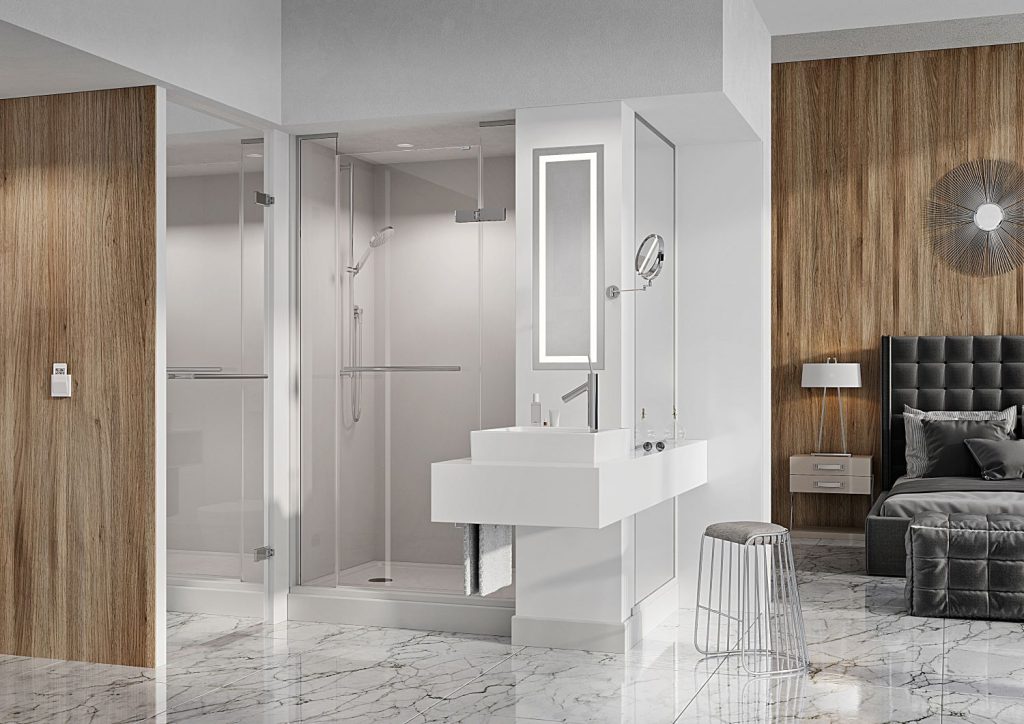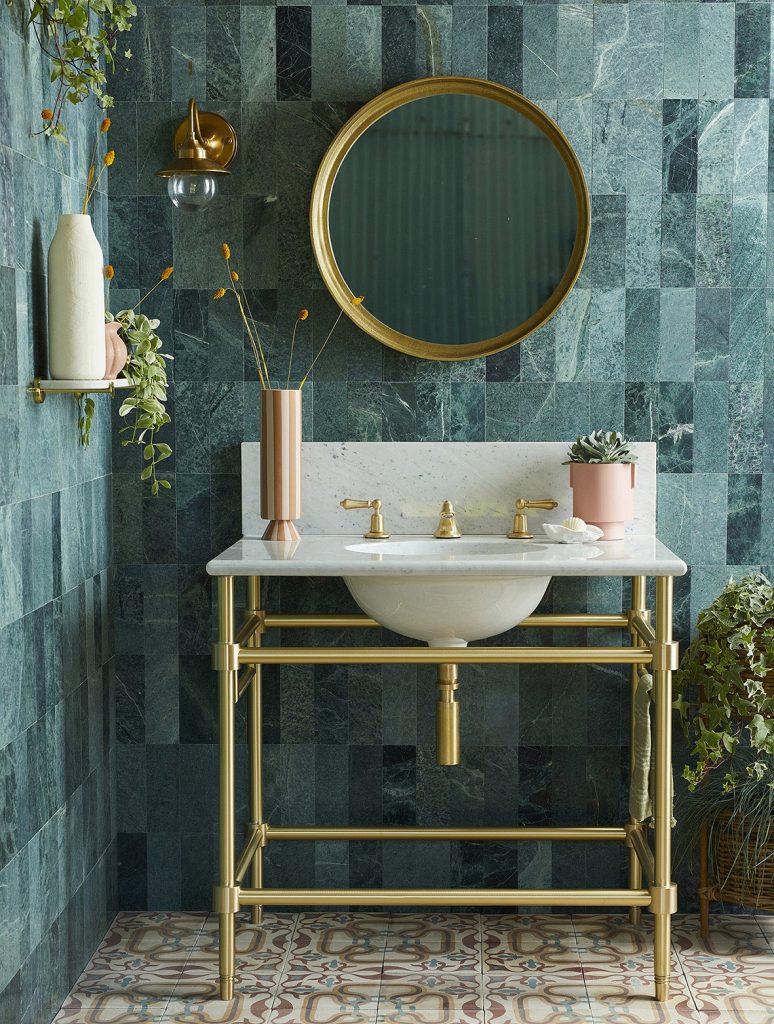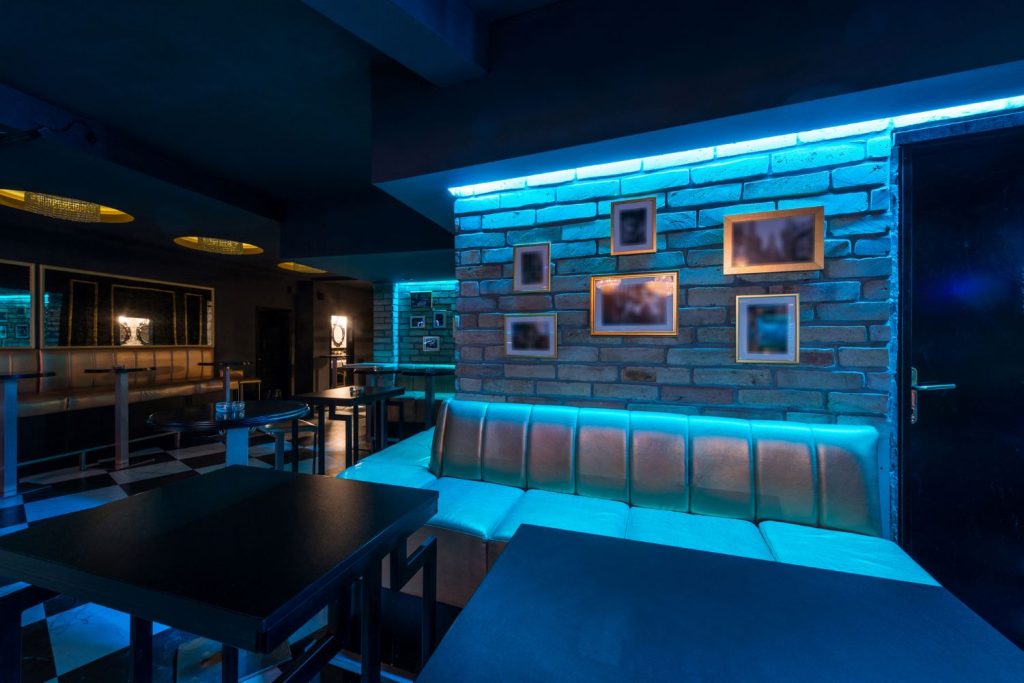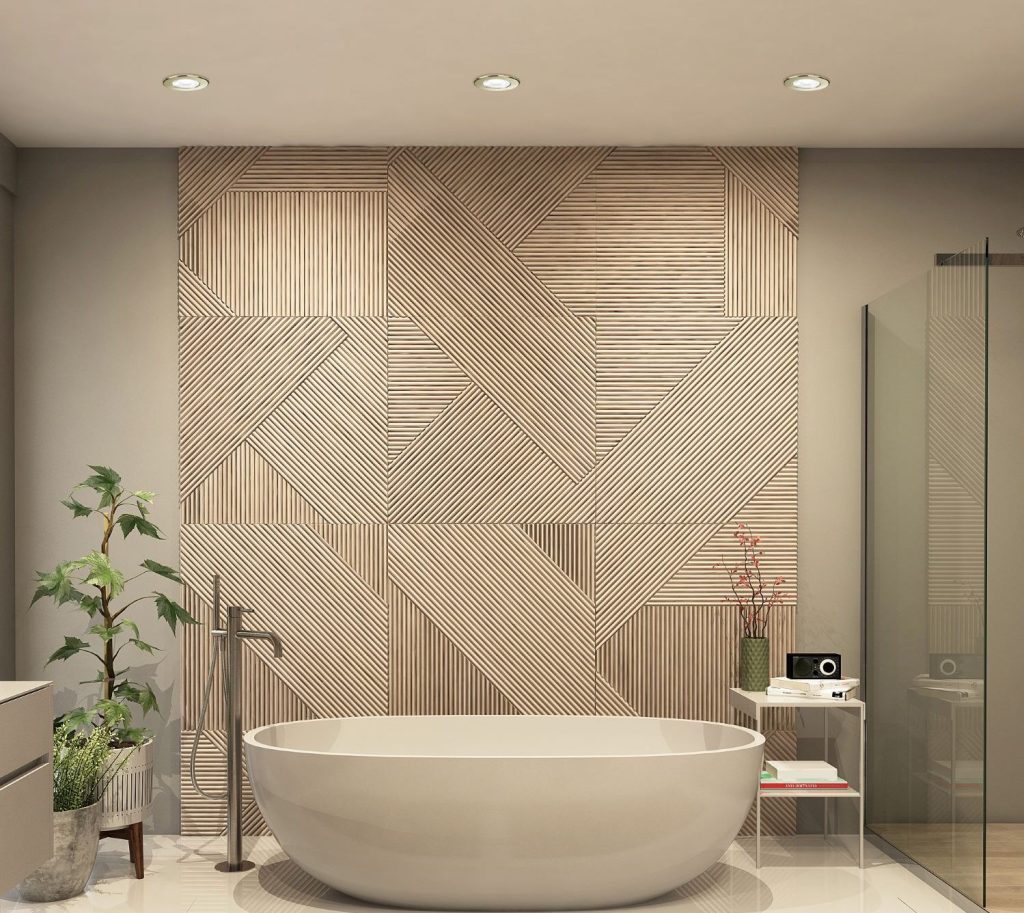
Features by Diane Larner, founder and editor of Bathroom Review & Kitchens Review.
Diane Larner launched both titles over 15 years ago and has been writing about the bathroom and kitchen interior design industry ever since, publishing regular features across the two sectors.
Creating a successful design for the hotel industry means building operational and safe spaces that enhance the user experience. In spa areas and bathrooms, guests seek immersive environments where they can unwind and switch off from the everyday. Additionally, integrating advanced technologies, including smart lighting and climate control systems, allows visits to be personalised.
Today’s consumers also want sustainability-assurances, and with eco-travel on the rise, Booking.com has confirmed that 73%* of travellers prefer an eco-sustainable hotel rather than a traditional one.
Keeping it light
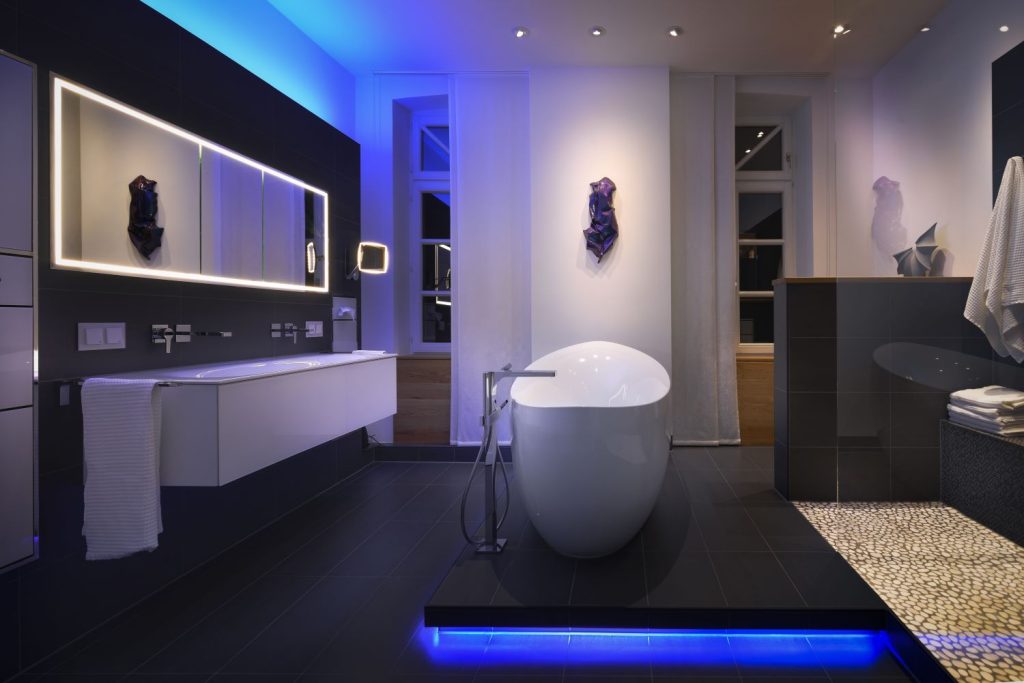
Accent lighting in bathrooms or spas plays a key role when developing a functional yet inviting atmosphere. Lighting design that is divided adequately between ambient and task goes a long way to ensure the space is well-lit yet with a good balance between brightness and softness.
Schlüter-Systems is well known for enabling the design and installation of long-lasting, creative bathrooms and has a varied portfolio of intelligent products and systems. The collection of lighting systems, which incorporate advanced control and luminaire technology, offers almost unlimited choice for the most imaginative schemes.
Schlüter-LIPROTEC can be installed in a choice of direct or indirect lighting effects, enabling the interior designer, architect, or property owner to illuminate feature walls, pictures, tiled areas such as shower enclosures or study spaces, kitchen countertops, and stairways. In fact, anywhere, the creative mind can conceive a plan.
Surface appeal
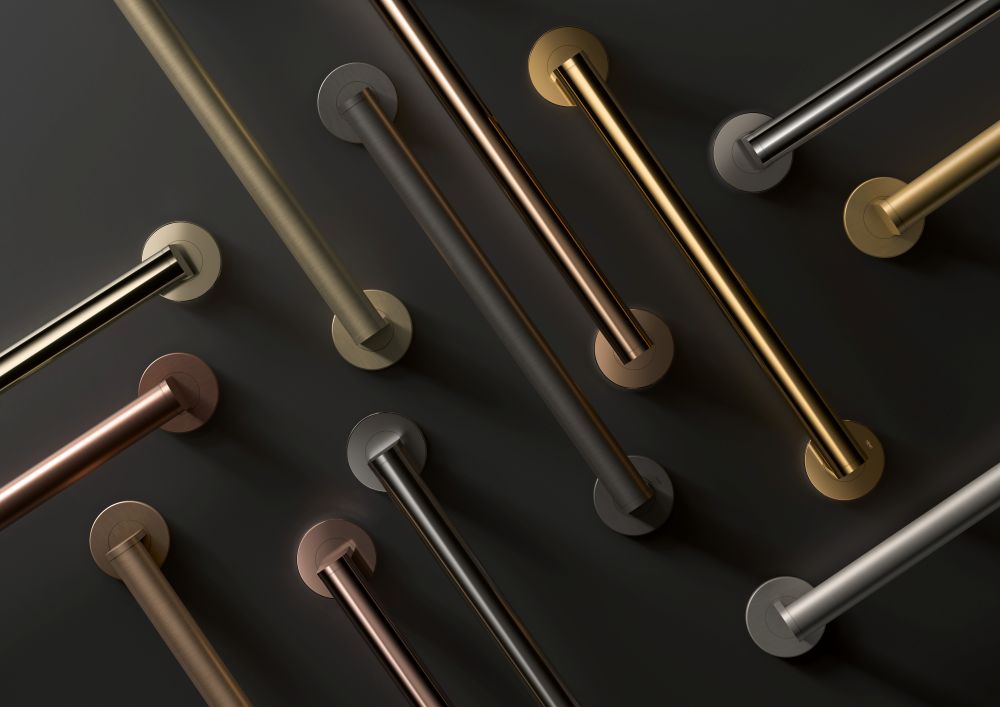
PVD (Physical Vapor Deposition) surfaces are increasingly popular in hospitality design thanks to their durability and aesthetic appeal. The PVD process is considered more environmentally friendly as it produces less waste and uses fewer chemicals. In addition, PVD doesn’t utilise toxic solvents or heavy metals.
PVD coatings are also highly durable and have an extended lifespan, which reduces environmental impact since they will not need to be replaced. As sustainability becomes a growing focus in hospitality design, the use of PVD surfaces offers a more eco-conscious option without compromising on quality or aesthetics.
Florian Haude, HEWI product manager, explains, “PVD-coated surfaces are trending and highly sought after in the hotel industry. Their durable, scratch-resistant finish ensures long-lasting elegance, even in high-traffic areas. From stylish bathroom fixtures to refined furniture details, PVD coatings enhance aesthetics while offering superior resistance to wear and tear.
“In addition to their durability, these surfaces are easy to maintain and retain their flawless appearance. With a wide range of modern finishes available, PVD technology allows hotels to create stylish and contemporary interiors that stand the test of time.”
HEWI has added twelve new PVD metallic designer surfaces, including brass, bronze, and gold. The latest designs can help transform contemporary sanitary rooms into personalised oases of well-being – be it in hotels, representative public buildings, elective surgery areas in hospitals or the bathroom at home.
A touch of glass
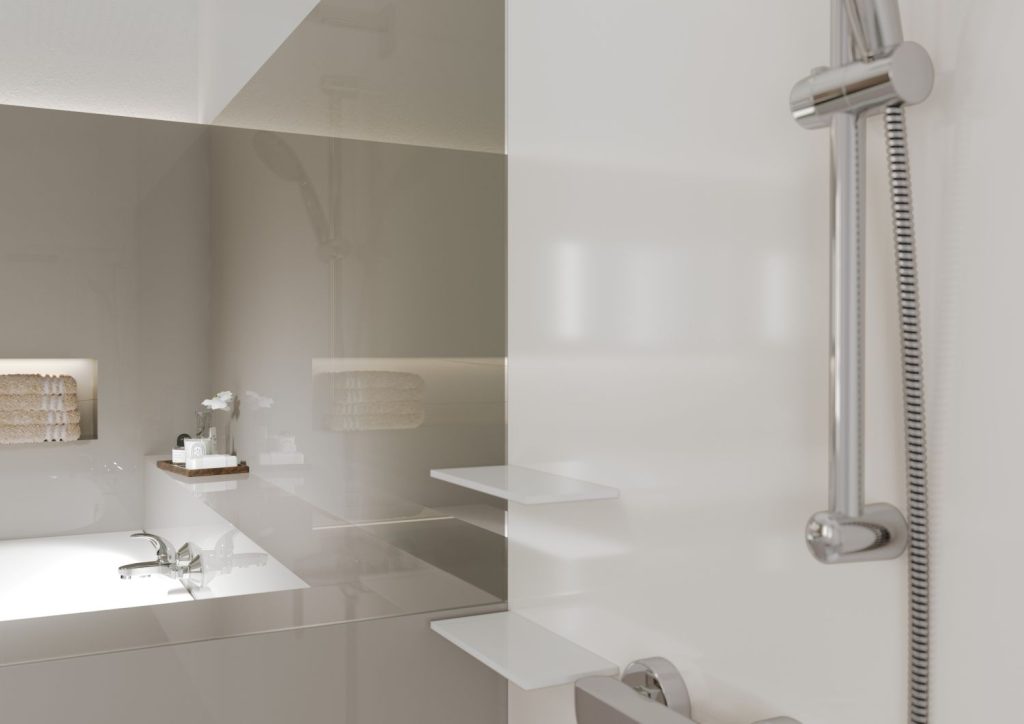
When selecting products for walls, washbasins, floors or furniture, creating a streamlined look will help to deliver sleek, sophisticated style. Clean cut, reflective surfaces and cabinetry add a high-end feel and reflect light, which in turn enhances the sense of space. These smooth, seamless finishes provide elegant good looks and offer a practical hygiene benefit. In short, materials such as high-gloss laminates and smooth composite surfaces are an ideal way to deliver contemporary style to both public spaces and private rooms, and although traditional glass delivers the same look, it is fragile and hard to maintain.
REHAU’s RAUVISIO glass laminate collections combine this balance of elegance and practicality, offering a modern alternative that maintains the aesthetic appeal of glass with added durability.
All systems go
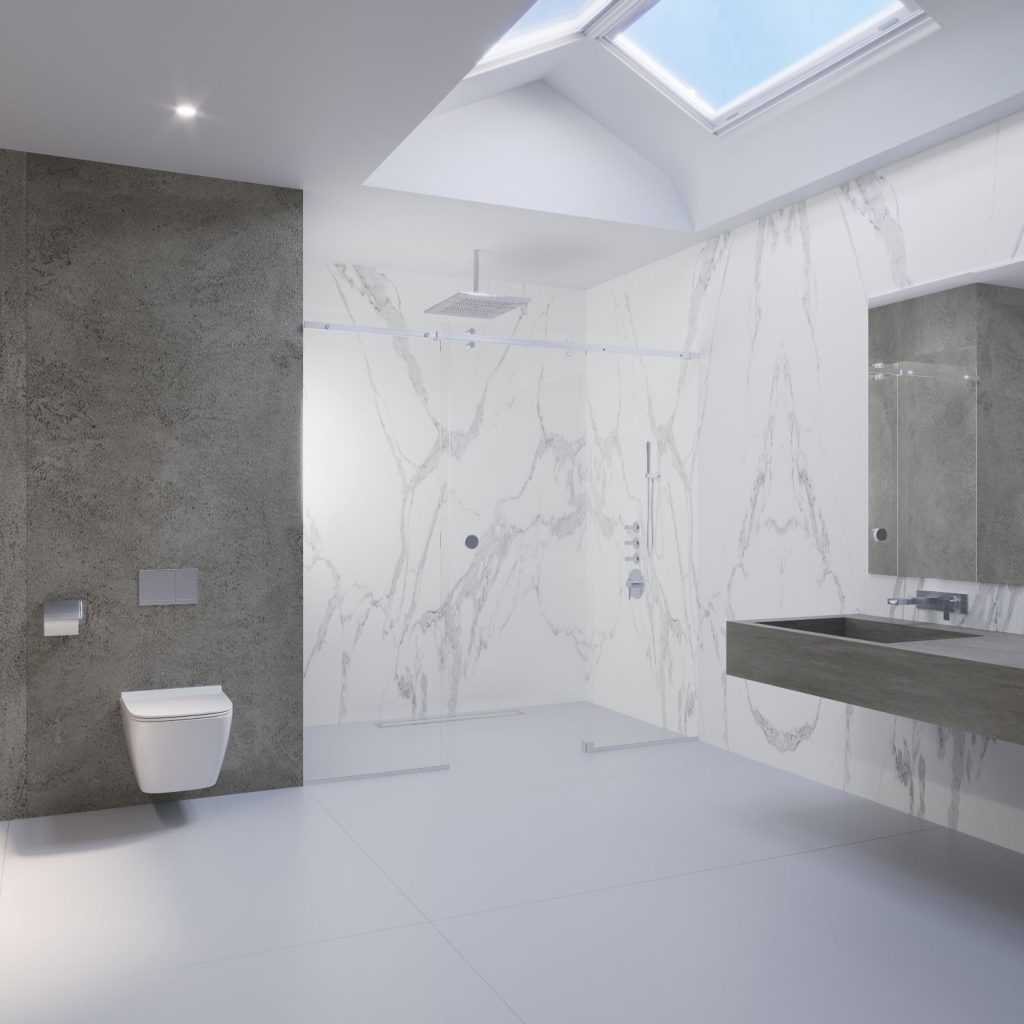
Employing universal and adaptive design principles means hoteliers can create spaces that are accessible to all guests. Investing in shower rooms that are inclusive is not just a moral step in the right direction, it also represents strategic business acumen that will increase profitability in the long run.
Simon Boocock, MD, CRL, explains, “Hoteliers are increasingly recognising the benefits of bespoke showering solutions which can accommodate a range of guest requirements. Today’s discerning guests want seamless, design-led, accessible solutions that cater for a variety of different needs without looking institutionalised.
CRL’s sleek and stylish Ceralsio surfaces are well suited to damp, humid bathrooms, are durable, and are easy to keep clean while also creating the high-end, spa-style aesthetic that today’s guests expect. They can be combined with its frameless, accessible sliding glass shower doors and CRL’s Serenity Shower System in Brushed Stainless Steel to create a light, minimalistic wetroom design.
“Bespoke showers that provide universal solutions have become an increasingly attractive choice for hoteliers with wetrooms and wall cladding leading the way.”
Make a statement
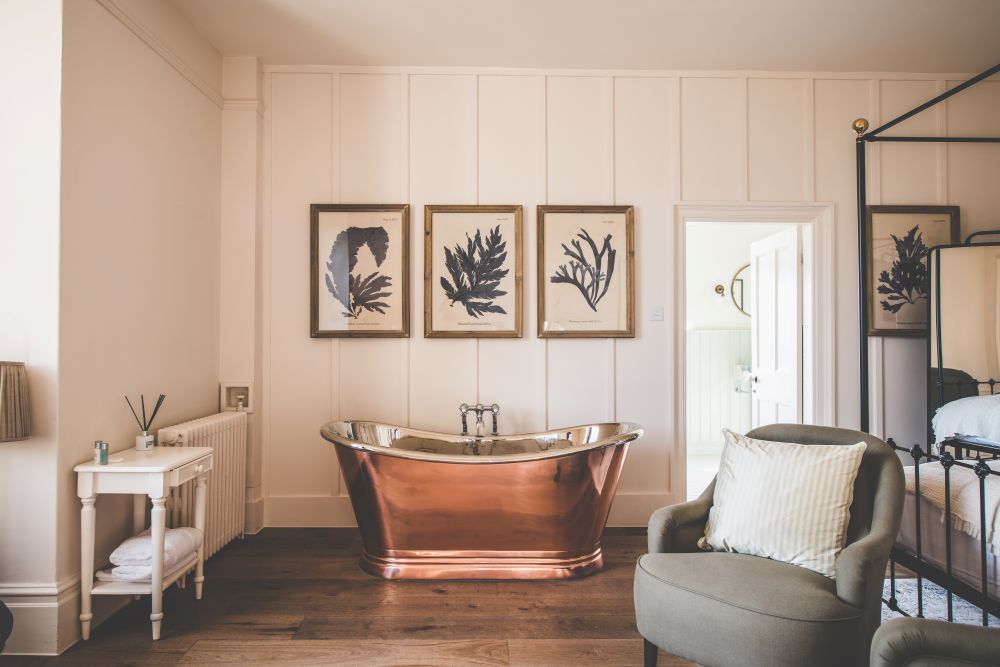
Incorporating deep, enriching colour into design remains a key trend for 2025. Colour helps create an atmosphere with earthy tones such as reds and gold, promoting cosy warmth, whilst cool blues and greens deliver a calming sense of tranquillity. Add a statement piece, like a freestanding bath, into the mix, and you have a unique design that helps build brand identity.
Barrie Cutchie, design director at BC Designs, agrees, “While luxurious freestanding baths have been a staple of hotel design for at least the last decade, we’re seeing a move to combine this with colour and personalisation. Combining a freestanding bath with dramatic colour is a sure-fire way to create an on-trend bathroom without overpowering the space”
“One such colour that is everywhere this year is avocado, which offers both an earthy and rich palette which brings a vibrancy without being overpowering. In fact, it is the biggest colour trend of bathroom design this year.”
BC Designs is renowned for its high-quality, design-led baths, with its Cian® and Copper Bath Ranges being standout choices for luxury hotel bathrooms. These baths not only provide a striking focal point but also offer durability, practicality, and a superior bathing experience—key considerations for high-end hospitality settings.
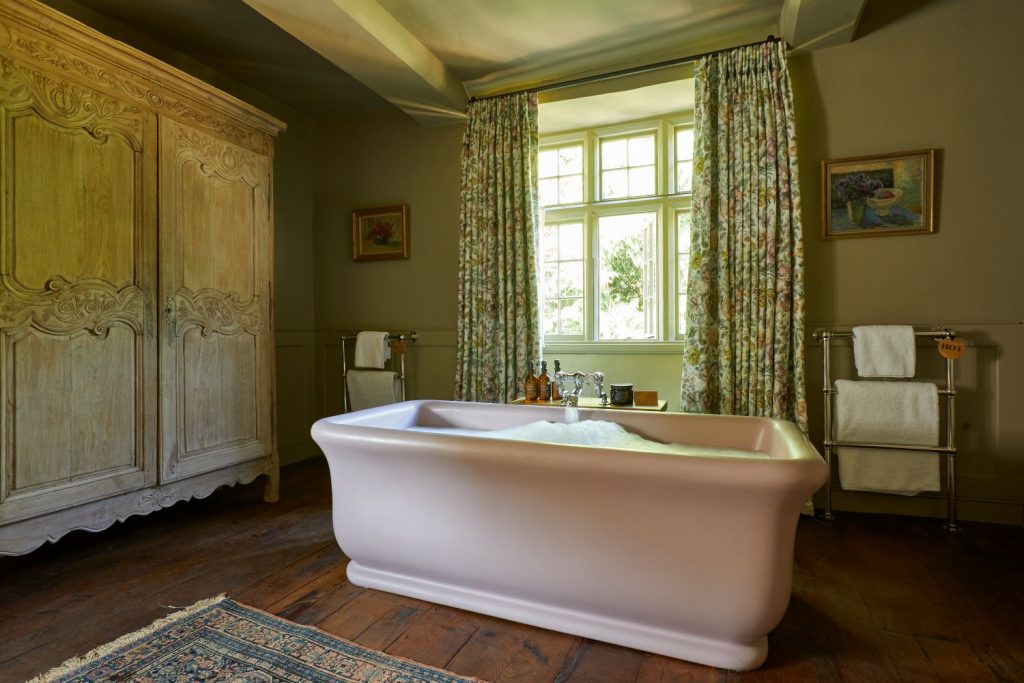
END
You can see more on our site if you enjoyed this Bathroom Review feature. Alternatively, if Kitchens are your thing, please visit our sister site, Kitchens Review


